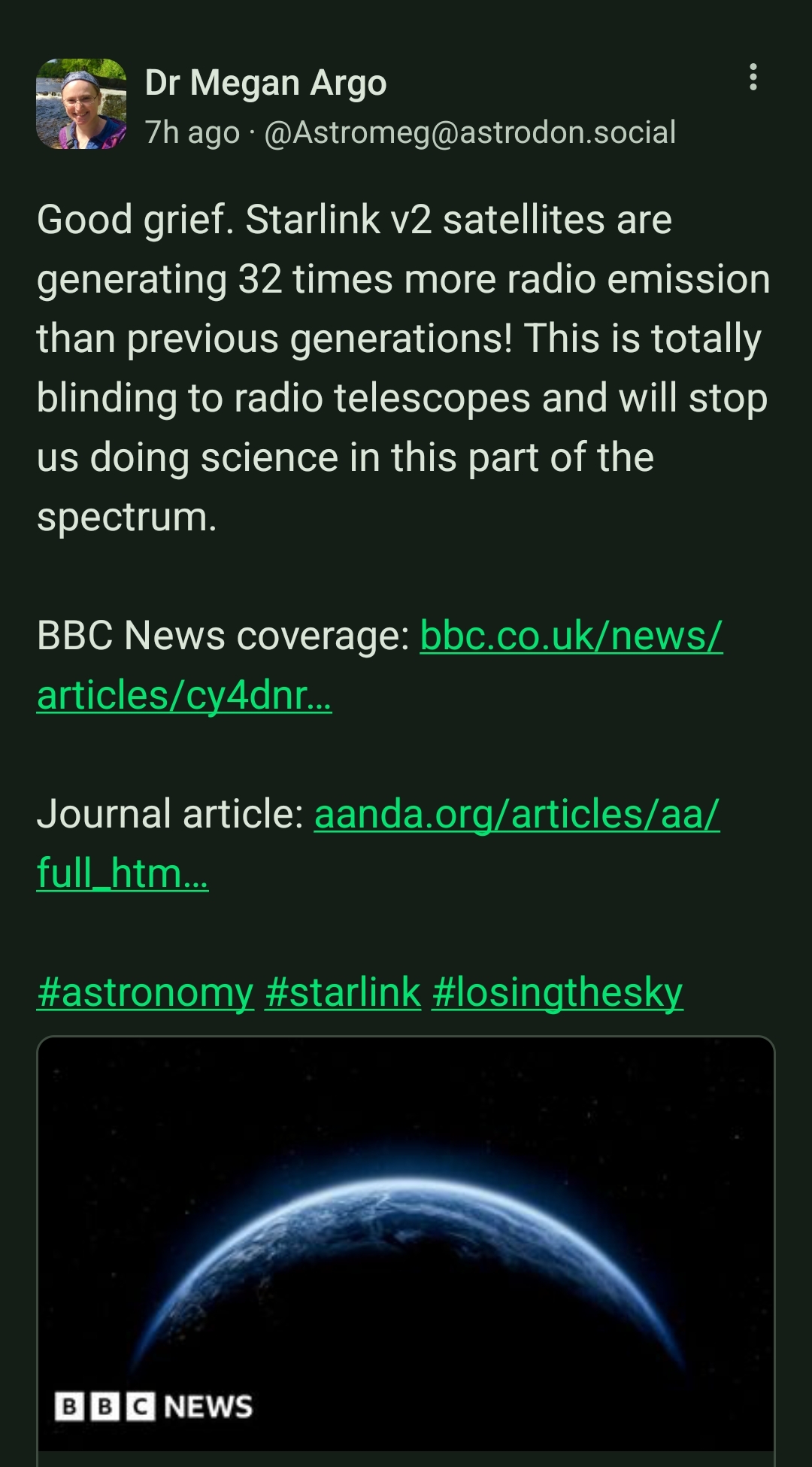this post was submitted on 18 Sep 2024
1221 points (97.4% liked)
Microblog Memes
6509 readers
2339 users here now
A place to share screenshots of Microblog posts, whether from Mastodon, tumblr, ~~Twitter~~ X, KBin, Threads or elsewhere.
Created as an evolution of White People Twitter and other tweet-capture subreddits.
Rules:
- Please put at least one word relevant to the post in the post title.
- Be nice.
- No advertising, brand promotion or guerilla marketing.
- Posters are encouraged to link to the toot or tweet etc in the description of posts.
Related communities:
founded 2 years ago
MODERATORS
you are viewing a single comment's thread
view the rest of the comments
view the rest of the comments

While I don't begrudge you your choice, I don't think this is a good defence of Starlink. It sounds too close to defence of leaded gasoline.
Someone else not solving a problem isn't a good defence for someone who creates a solution to that one problem that ends up being a net negative for humanity as a whole, and it's definitely not a defence of a second generation that makes a known problem with the technology even worse.
Not a fan of Starlink. But net negative to humanity? Idk about that.
Let say we do lose that band of the em spectrum. Does that take away more than we gain by improving the life of the dude above and many like him?
As much as I like science and space, shouldn't "humanity's" first concern be the well-being of humans? I'd say we live at a time where Internet access should be a public utility, not having it marks a dramatic difference in opportunity. Starlink isn't that, but it's better than nothing.
Having scientists looking at space is important, but it doesn't help everyday joe, who needs the most help.
That being said. I agree it is up to governments to find their balls and regulate the use of space. Like they did with gasoline.
There are so technological advances that have saved many, many lives thanks to our space science. Starlink doesn't just endanger astronomical observation - it endangers other forms of space communication as well as our practical ability to put up (or use) other satellites. This means less accurate earth science too, including making it harder to predict extreme weather events, track climate change, etc. Things that save lives are being put in jeopardy.